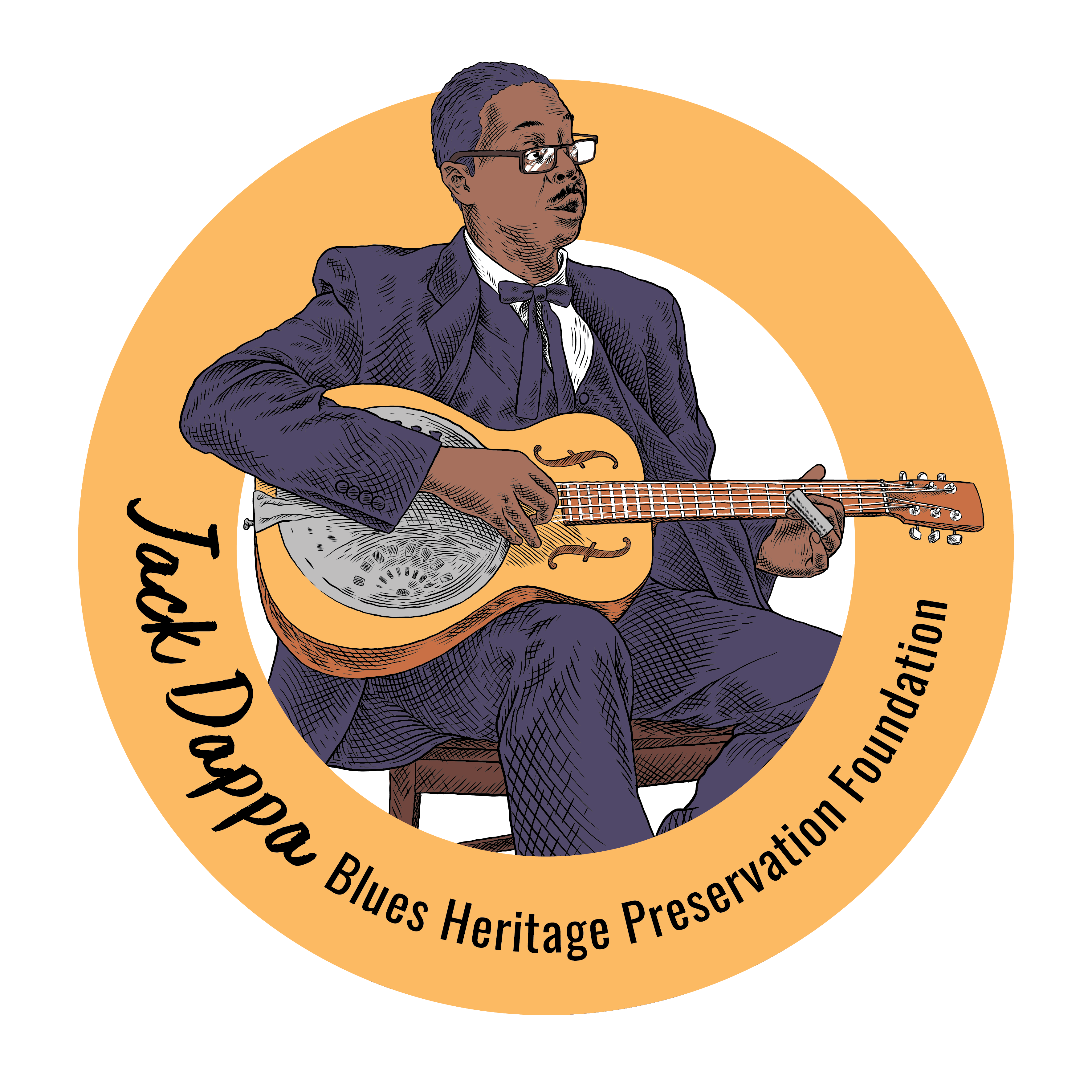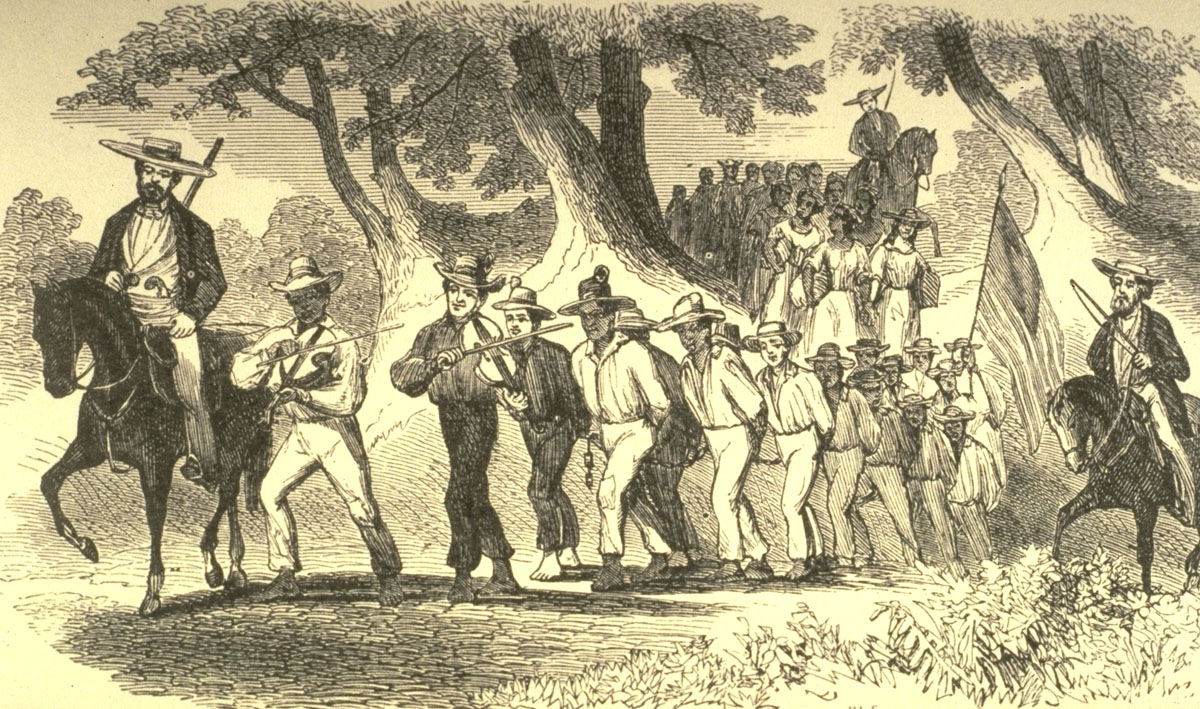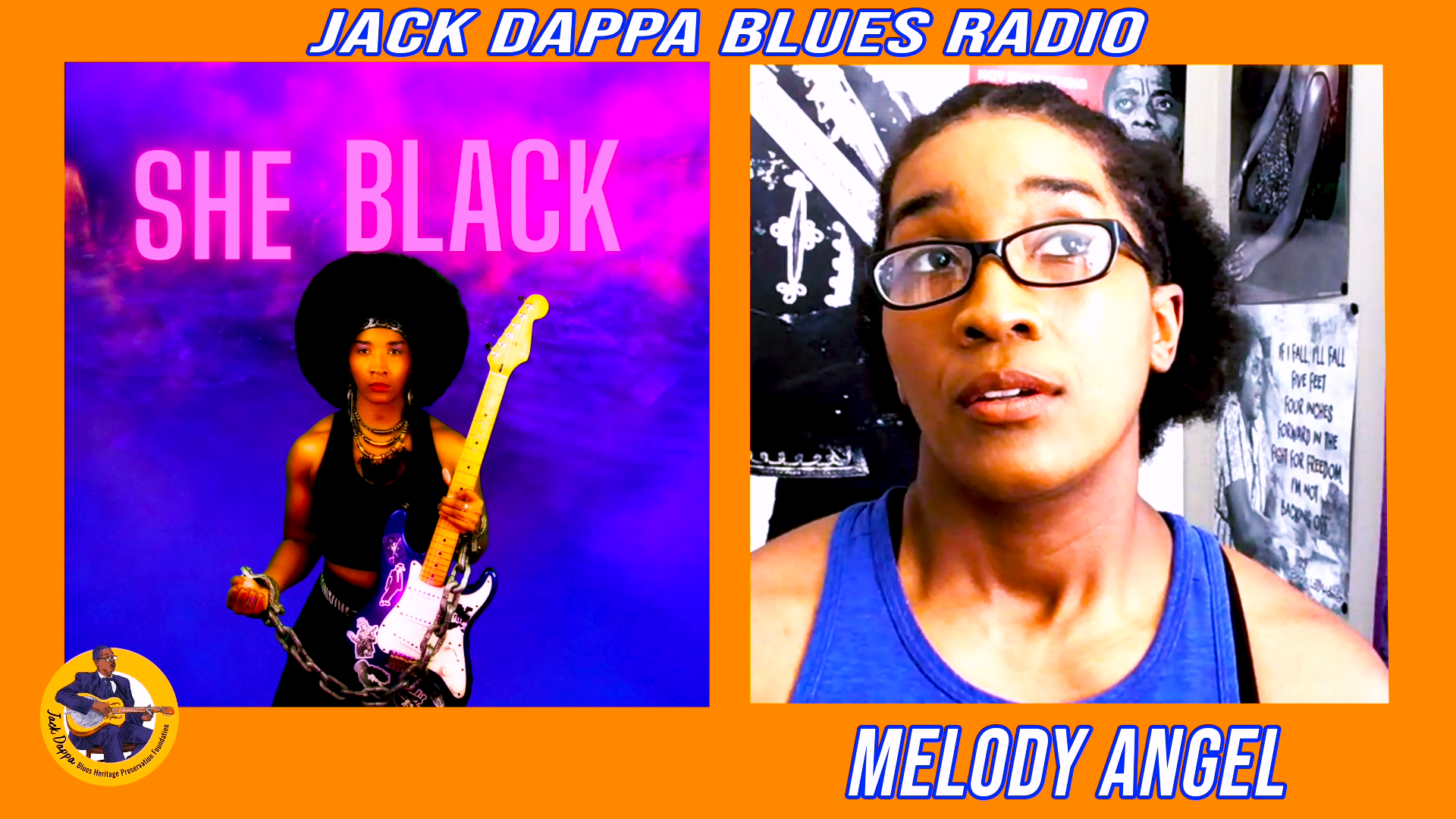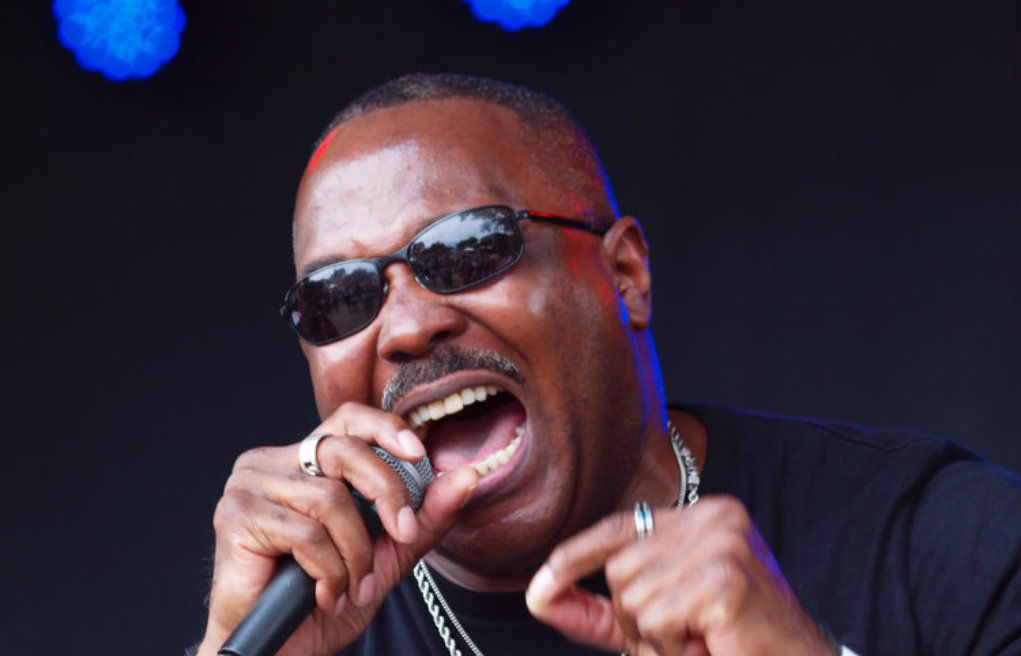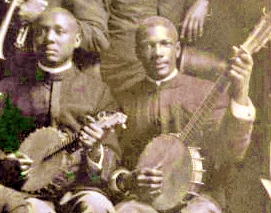Coffle Gangs America’s Domestic Slave Trade
by Lamont Jack Pearley
I’m learning to deal with this nostalgia people have for the antebellum south that birthed a tribal music that became an internationally commercial success, making non African Americans extremely wealthy. International wealth off of the backs of Black people isn’t a new concept either. Slavery is a harsh reality of the world economy, and when most people think of chattel slavery, they think America and the Middle Passage. What they don’t think about, possibly because it’s rarely discussed, is the internal slave trade known as the domestic slave trade, that skyrocketed the wealth of America, making our country the epitome of this capitalistic society we live in.
During and after the Revolutionary War, the writing of the Declaration of Independence and the sanctions slapped all over the place making the Middle Passage less attractive to the many nations that benefited from it, the sugar industry was beginning to deteriorate. There was a lot of talk about the immorality of slavery, and the repercussions that the white elite establishment would face behind such a monstrosity. In the late 1700’s, when the Government wasn’t very stable, and everything was still pretty much up for grabs, Northern Bankers from New York to Massachusetts, political powers in Philadelphia and rich plantation owners in Georgia, Virginia and Maryland began to conjure up speculations and business ventures that would ultimately expand slavery.
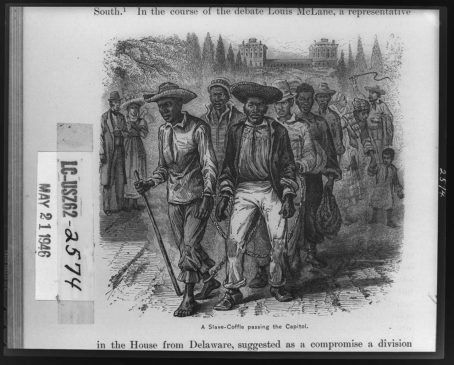 The domestic slave trade within the United States did not begin, as is often assumed, with the abolition of the transatlantic slave trade in 1807. It originated half a century earlier in the 1760s, and overlapped with the trade from Africa. It was extensive even between 1787 and 1807, a period in which more Africans were forced to these shores than in any two decades in North American history. The domestic trade continued into the 1860s and displaced some 1.2 million men, women, and children, the vast majority of whom were born in America.
The domestic slave trade within the United States did not begin, as is often assumed, with the abolition of the transatlantic slave trade in 1807. It originated half a century earlier in the 1760s, and overlapped with the trade from Africa. It was extensive even between 1787 and 1807, a period in which more Africans were forced to these shores than in any two decades in North American history. The domestic trade continued into the 1860s and displaced some 1.2 million men, women, and children, the vast majority of whom were born in America.
Taking excursions across the Appalachians, surveying the entire Delta region, (including but not limited to Mississippi, Louisiana, Alabama and Tennessee) these capitalist business men began to buy and speculate on land that would be presented as farm land, yet meant to be what it was ultimately called…..Slave States. These slave states where purchased for the sole purpose of slave labor. It was based on intercontinental trade, which was speculated to generate huge wealth for the White American businesses that was ran by the northern bankers, government officials and southern plantation owners.
This new form of slavery bought, sold and transported African American bodies from state to state, walking twenty hour days. This form of chattel slavery began to be called “Coffle Gangs”. A Coffle is a line of animals or slaves fastened or driven along together bound by iron clads and chains. A Coffle is long row of men chained two-and-two together, and numbering about thirty persons, then came the unmarried women, or those without children; after these came the children who were able to walk; and following them came mothers with their infants and young children in their arms. Contrary to the many false stories of African, African American and Indigenous people just willingly becoming enslaved, the purpose of this coffle gang was to prevent any more rebellions and the escaping of those who were kidnapped to be sold. The coffle gang was a nasty dirty business that was looked down upon by a good percentage of the established whites of the time.
Yet there were a group of men who was just right for the job, and they were referred to as “Georgia-men” . The Georgia-men title rang through the African American community the same way Freddy 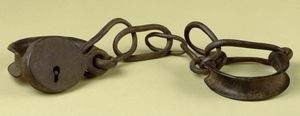 Krueger’s name terrorized the young teens that lived on Elm street. Rough mean men on horseback. They would travel town to town purchasing African American’s, locking them to the other captives, then begin their journey to their selling points. And don’t be fooled, President Washington and relatives enjoyed the finances of Coffle Gangs as they too sold off some of their slaves in Mt. Vernon to Georgia-Men that marched the captives all the way to the south. However, The Georgia-men didn’t have a good reputation among whites in Virginia and Maryland. A huge reason for the dislike of the Georgia-men by other whites is the fact that they walked the American economy right through the streets making everyone face the horrid reality of the domestic slave business that financed America.
Krueger’s name terrorized the young teens that lived on Elm street. Rough mean men on horseback. They would travel town to town purchasing African American’s, locking them to the other captives, then begin their journey to their selling points. And don’t be fooled, President Washington and relatives enjoyed the finances of Coffle Gangs as they too sold off some of their slaves in Mt. Vernon to Georgia-Men that marched the captives all the way to the south. However, The Georgia-men didn’t have a good reputation among whites in Virginia and Maryland. A huge reason for the dislike of the Georgia-men by other whites is the fact that they walked the American economy right through the streets making everyone face the horrid reality of the domestic slave business that financed America.
In the 1760s, Pennsylvania, New York, New Jersey, and Massachusetts were exporting some of their bonds people to the Southern colonies. By the 1790s, Maryland, Delaware, and Virginia had become the main exporting areas, the bulk of their “shipments” going to Georgia, Tennessee, Kentucky, the Carolinas, and the sugar-planting regions of Louisiana. But by the 1820s the Carolinas and Kentucky were exporting more people than they were importing.
Ironically, rhythm was key to these long halls from one town to the next of chained men and roped women following the horses of the Georgia-men. The iron clads and chains were so tight and close, there needed to be unison in every action taken as the gang proceeded to and fro. This was an act that continued well into the 1800’s. It actually helped trigger the Civil War. This form of slavery produced mass wealth, and corporations still benefit from the money made during that time.
These are the conditions that spawned Negro Spirituals, Corn-Field Ditties, Blues and the like. So, yes, the music should be appreciated, celebrated and even made into a monument, but please be very careful being so enamored by the music that you romanticize the Antebellum South and other systems that grew out of the land our blues heroes spawn from, because the memory of the music and performer are sweet, but the climate they lived in definitely wasn’t.
Here’s are lyrics to a song about the Coffle Gang –
Song of The Coffle Gang
This song is said to be sung by Slaves, as they are chained in gangs,
when parting from friends for the far off South—children taken from
parents, husbands from wives, and brothers from sisters.
See these poor souls from Africa,
Transported to America:
We are stolen, and sold to Georgia, will you go along with me?
We are stolen and sold to Georgia, go sound the jubilee.
See wives and husbands sold apart,
The children’s screams!—it breaks my heart;
There’s a better day a coming, will you go along with me?
There’s a better day a coming, go sound the jubilee.
O, gracious Lord? when shall it be,
That we poor souls shall all be free?
Lord, break them Slavery powers—will you go along with me?
Lord, break them Slavery powers, go sound the jubilee.
Dear Lord! dear Lord! when Slavery’ll cease,
Then we poor souls can have our peace;
There’s a better day a coming, will you go along with me?
There’s a better day a coming, go sound the jubilee.
